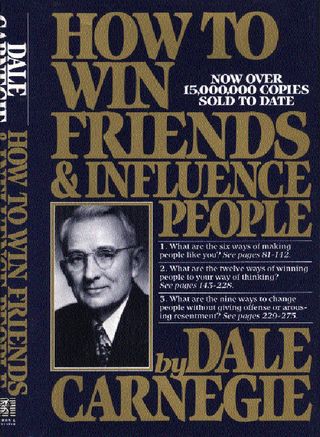One of the most common questions we get from our clients is:
“What do I say to the candidates who are in my talent pipeline? I know I need to follow-up with them consistently, but how do I keep a person engaged and interested over a long period of time?”
This is a great question and one that we’re going to attempt to answer in this week’s discussions.  We’ll start with a simple principle that Dale Carnegie once recognized:
We’ll start with a simple principle that Dale Carnegie once recognized:
“You can make more friends in two months by becoming really interested in other people than you can in two years by trying to get other people interested in you.”
The natural way to approach a talent pipeline (our term for the pool of candidates you are most interested in recruiting) is from a perspective of “What can these people do for me?” After all, you are recruiting them for the contribution they can make to your organization, not the other way around, right?
In the recruiting process, however, you’ll find more success by operating under the opposite perspective. You must legitimately put yourself in a mindset where you’re asking, “How can I help this person accomplish both their personal and career goals?” This is what makes a lasting impression in the minds of your candidates.
This may sound oversimplified, but the human spirit has a way of drifting back to self-interest unless we continually prod it to take an interest in others.
The first step in this process is to focus your conversations with candidates on what the candidate is trying to accomplish in their life. We already know that people like to talk about themselves, so ask questions that allow a person to talk about their accomplishments, what they’re proud of doing, and how they do their best work.
During these conversations, listen for frustrations and obstacles that keep the individual from being more successful. Don’t act on this information at this point—just listen and catalog the information for later use.
Next, find ways to address or solve one or two of these frustrations. These solutions will carry more impact if they come from outside your organization and have nothing to do with the recruiting process. In fact, the most thoughtful and empathetic people are able to pick up on the smallest cues during a conversation and turn them into action.
I’ll give you an example from my personal life:
I was at dinner with a group of guys last week. During the conversation, the topic of youth baseball came up. One of the guys in the group had some apprehension about his son leaving the Little League environment (only for 12 years and younger), unaware of what options are available at the next level. Because I have sons who have played at various levels and in various leagues, I was able to answer some questions and refer him to a couple of websites and individuals who may be able to help him make a good decision.
While my example doesn’t pose a huge dilemma of sorts, it does illustrate how you can listen for a small frustration/concern and then act upon this information to help alleviate the frustration.
If you can integrate these types of interactions into the conversations you have with those in your talent pipeline, it won’t be long before those with whom you interact see you as a resource. It becomes natural (and comforting) to them to imagine themselves working with people who are helpful and insightful, like you.

